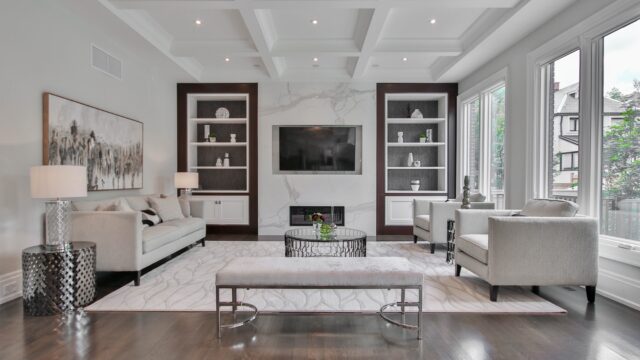Your Dream Home: What’s the Ideal Choice? A High-rise Condo or a Custom-Built House Tailored to Your Preferences?
In today’s post, we’ll delve into why purchasing a new construction single-family home or a custom-built residence can be a major pitfall.
To cut to the chase, the value of your investment is sure to depreciate, and the property’s worth will inevitably hit zero.
Whether you decide to part ways with your home for some reason or when your heirs, who inherited it, consider selling, you’ll come to realize the imprudence of such a decision.
This is something no real estate agent would ever advise.
Through an exploration of the intricacies of the Japanese real estate market, we’ll discuss the specific reasons behind this.
By the end of this read, you’ll be equipped with the knowledge to steer clear of significant losses in real estate and understand the key factors for making an optimal property purchase with an eye on resale value.
The Reliability of This Article
This article was written by someone with the following background:
- Over 15 years of experience in real estate brokerage at a well-known major real estate agency
- Successfully closed more than 300 real estate brokerage cases to date
- A certified 1st Class Financial Planner
- A Certified Financial Planner (CFP)
- A licensed Real Estate Transaction Specialist
In Japan, the Fundamental Differences in Property Valuation Between Single-Family Homes and Condos

When selling real estate, the anchor for determining the selling price is often the appraisal conducted by real estate agencies. While the ultimate decision on the selling price lies with the seller, it is common to base the sales price on the appraisal value provided by the real estate company.
First and foremost, it’s crucial to understand that despite both condos and single-family homes utilizing the same comparable sales method, which relies on the market prices of nearby properties, the evaluation methods are fundamentally different.
When appraising a condo, the process involves calculating the local market value based on sales and transaction examples of similar properties with comparable factors such as age and proximity to stations. The appraisal then considers individual factors of the property, such as floor level, layout, and orientation. In essence, condos are evaluated as a whole, without separating the land (the condominium site) and the building.
On the other hand, the process is different for single-family homes. Land and building values are appraised separately, and the overall appraisal value is determined by combining these two values.
For land, similar to condos, the appraisal is based on the local market, taking into account individual factors like topography and proximity to roads. However, for the building, after estimating the construction cost at the time of building, it undergoes a depreciation reduction based on its age. This is a crucial point.
In the case of wooden structures, the building value undergoes a reduction based on a maximum age limit of 20 years, decreasing with the passing years and reaching zero after 20 years. Even for steel-framed or reinforced concrete structures, though the maximum age limit is longer than for wooden structures, the fundamental principle remains the same. The building is depreciated based on the age limit corresponding to its structure, and the final appraisal value inevitably becomes zero.
In essence, the appraisal of a building in single-family homes, regardless of being built by a well-known top-tier house maker or having luxurious facilities, will hit zero once the maximum appraisal age is surpassed. The more one invests in the building, the higher the depreciation rate on the future asset value. From this perspective, purchasing land and constructing a custom home with a high-end construction company is considered the worst option in terms of resale value.
If You Want a Single-Family Home, Consider Buying a Used One

If you’re looking for a home in the city center, a well-located condo is often recommended over a single-family home. However, for those who still prefer a single-family home, especially if it’s a wooden structure, consider purchasing a used one that’s more than 20 years old.
As mentioned earlier, the appraisal of a building inevitably depreciates based on the maximum age limit corresponding to its structure. In that case, the wisest choice is to buy a used single-family home where the building value has already diminished, and you’re essentially paying for the land value alone.
It’s advisable to choose a used single-family home in good condition and complete minimal renovations. Keep in mind that renovation costs can skyrocket if you get too ambitious, so moderation is key.
As a point of caution, remember that, similar to construction costs, renovation costs lose their value in the appraisal assessment after a few years.
When it comes time to sell, consider marketing the property not as a single-family home but with the assumption of eventual demolition, focusing on selling it as valuable land.
How to Proceed If You Still Desire a New Construction or Custom-Built Home

For those who believe that living in a shiny, brand-new home is the epitome of life’s great happiness, regardless of the selling price when the time comes, go ahead and make that purchase without hesitation.
Although this sentiment may seem contradictory to the earlier explanations, the concept of homeownership is not solely about gains and losses.
While this article has approached the topic from the perspective of real estate and the resale value of assets, the decision to buy a home is ultimately not about the financial aspects. If it brings immense satisfaction and contributes significantly to one’s happiness, even if the future value of the building drops to zero, it’s worth buying.
This goes beyond the realm of resale value considerations.
Conclusion
I’ve explained the fundamental differences in the appraisal of residential real estate between condos and single-family homes. Condos undergo a relative evaluation based on the market prices of nearby properties, while single-family homes have a distinct feature of separate evaluations for land and building, with the appraisal of the building inevitably decreasing towards zero based on the maximum age limit corresponding to its structure.
Considering these characteristics from the perspective of real estate resale value, purchasing a condo is generally recommended over a single-family home.
If you are inclined to buy a single-family home, it’s advisable to opt for a relatively well-maintained used one that has surpassed a certain age, where the building value has already diminished.
However, if you have a strong desire for a brand-new single-family home or a custom-built residence, and you believe it holds significant value in your life, feel free to make the purchase without hesitation. At this point, it transcends considerations like resale value.
I hope this article provides some insights into your home-buying decisions.
Thank you for reading until the end once again.










